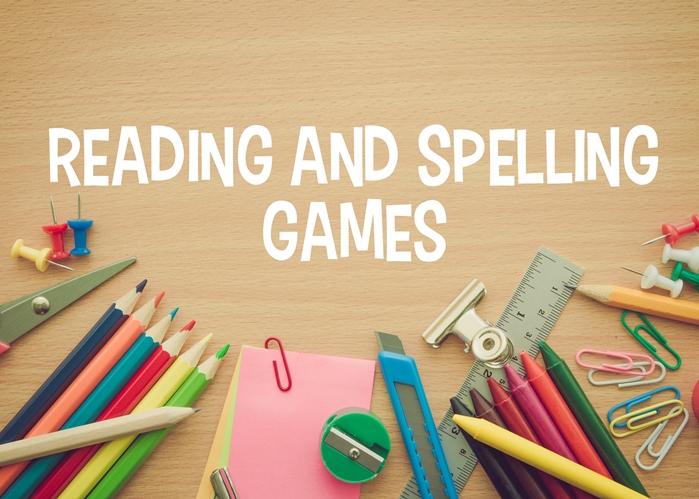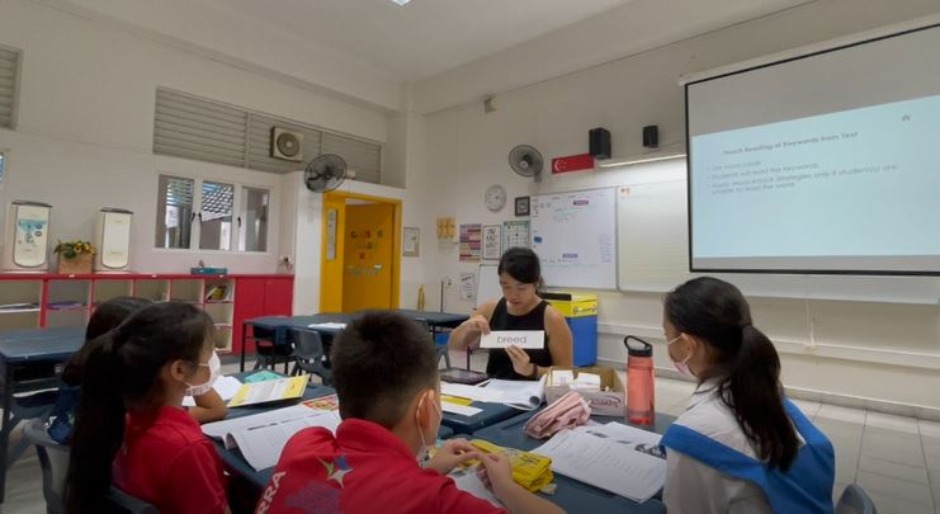Reading and Spelling Games for Kids
22 Nov 2016

For children in lower primary, nothing is more important than instilling the joy of reading and equipping them with skills to become successful, lifelong readers. Playful yet purposeful phonics games are a great way to do this!
Playing reading and spelling games at home with your children encourages them to learn while having fun. The games, recommended by MOE Learning Support Coordinators, are pitched for children in lower primary and cater to different learning styles by incorporating auditory and visual mnemonics, and tactile activities. Some of the activities also help to develop phonemic awareness. Words used in these games are taken from books that you can find at the National Library or on NLB’s online Tumblebook Library.
Check out these interesting activities accompanied by fuss-free printable resources and have fun bonding with your kids!
Reading Activity 1: Onset-rime blending
Onset-rime blending is a useful reading strategy, especially for beginning readers. Parents can play the game with their children to create and read new words! The words used in this game are drawn from the book, “Keesha’s Bright Idea”. Parents can also use the resource template to park in words from any book at home.
Click to download the Instructions and Printables.
Reading Activity 2: Rhyme race
Rhyme ability is important for later reading success. According to research, children’s exposure to ending sounds in words and word families gives them a head- start to reading. Young children who are able to rhyme are also likely to become successful readers later on.
Through a memory game that spans several difficulty levels, this activity is both fun and challenging. Parents can download and print out these word cards, or use words from other books at home.
Click to download the Instructions and Printables.
Reading Activity 3: Story cubes
To check for understanding, use this post-reading activity to help children to retell the story. Alternatively, use it to start and guide the writing process. Folded into small square cubes, each cube covers a key story element (e.g. setting, characters, and event). In the inner folds are prompts to support the retelling process, which also double as cues to start children on writing a narrative.
Prepared based on the book “Hello Sun”, a set of word cards and story cubes can be downloaded for use. Alternatively, use the generic set to complement other books.
Click to download the Instructions and Printables.
Reading Activity 4: Dramatization
Drama helps develop empathy and encourages perspective-taking in children. By emphasising “doing” rather than passive reading or memorizing, children are given the opportunity to respond to the text, thereby increasing concentration and comprehension.
Drama strategies also build confident speakers and creative writers. Freeze Frame and Thought Tracking are 2 strategies parents can use with their children to dramatize any book they are reading at home.
Click to download the Instructions.
Spelling Activity 1: Explore-to-spell
Instead of the conventional use of pencil and paper, this activity involves movement and fun! Children break up a word into its respective sounds, and represent each sound using game tokens and bands. Played with parents at home, this game enhances children’s encoding skills and helps children with sound-letter correspondence for spelling. This game can also be played using words from the school’s spelling list!
Click to download the Instructions and Printables.
Spelling Activity 2: Spell-to-bingo
Through a Bingo game, parents can help children master sounds. Depending on the child’s ability, choose from three levels of difficulty. Children will place tokens on the cells based on the correct beginning or ending sounds from words given by parents and win when they are able to place a row of tokens in a vertical or horizontal line. Boost your child’s confidence by repeating the words slowly if children are unable to hear the sounds accurately the first time. Speaking clearly and slowly will train your child’s listening skills. Parents can also play this with their children using words from the school’s spelling list.
Click to download the Instructions and Printables.
Special thanks to Learning Support Coordinators who put together this literacy resource pack, and to the National Library Board for their support. Screen shots are taken from NLB’s Tumblebook Library, courtesy of Tumbleweed Press Inc.


.jpg)


